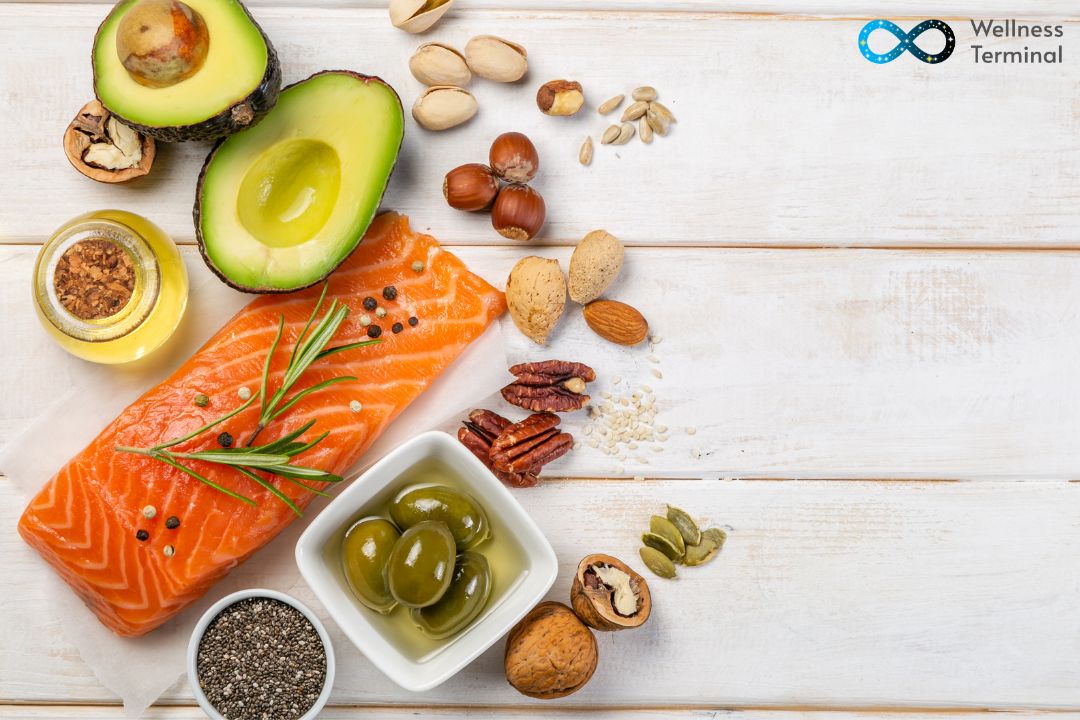When we hear the word "fat," our brains might conjure up images of guilty pleasures like decadent desserts or buttery popcorn. But what if we told you that not all fats are created equal, and there's a type of fat that's not just good but essential for our wellness? Enter omega-3 fatty acids – the superheroes of the fat world. In this blog, we're embarking on a journey to uncover the wonders of omega-3s, breaking down complex science into simple terms that even your taste buds can understand.
Omega-3s: The Basics
Alright, let's get to the heart of the matter. Omega-3 fatty acids are a type of polyunsaturated fat. Don't let the fancy term scare you; all it means is that these fats have multiple double bonds in their chemical structure. But here's where it gets interesting – these fats are like nutritional gems that our bodies can't produce on their own. That means we need to get them from the foods we eat, making them an essential part of a balanced diet.
3 Types of Omega-3
There are three main types of omega-3 fatty acids that deserve a spotlight:
ALA (Alpha-Linolenic Acid): This superhero is found in plant-based sources like flaxseeds, chia seeds, and walnuts. While our bodies can convert ALA into the other two types of omega-3s, EPA and DHA, the conversion rate isn't super efficient. But don't worry – ALA still brings its own health benefits to the table.
EPA (Eicosapentaenoic Acid) and DHA (Docosahexaenoic Acid): These dynamic duos are primarily found in fatty fish like salmon, mackerel, and sardines. EPA and DHA are like the power couple of omega-3s, with a myriad of health benefits that we'll unravel in a bit.

Health Benefits of Omega-3
Now that we know what omega-3s are, let's explore why they're hailed as nutritional powerhouses:
Heart Health Heroes: Omega-3s have a heartwarming reputation for supporting cardiovascular health. They can help reduce triglycerides (a type of fat in your blood) and maintain healthy blood pressure levels, reducing the risk of heart disease.
Brain Boosters: Our brain loves omega-3s as much as we love binge-watching our favorite shows. DHA, in particular, plays a crucial role in brain development and function, supporting cognitive health and potentially reducing the risk of cognitive decline.
Inflammation Fighters: Omega-3s have anti-inflammatory properties that can ease the body's response to inflammation. This can be especially beneficial for conditions like arthritis, where inflammation plays a major role.
Mood Modulators: EPA and DHA have been linked to improved mood and mental well-being. Some studies suggest that omega-3s may even help manage symptoms of depression and anxiety.
Skin and Hair Shine: These good fats aren't just internal heroes; they're skin and hair saviors too. Omega-3s can help maintain skin hydration, and elasticity, and even tackle issues like dry skin and dandruff.
Incorporating Omega-3s into Your Diet:
Now that we're convinced of omega-3s' benefits, how can we ensure they have a starring role in our diets? Here's a delicious plan:
Fatty Fish Fiesta: Incorporate fatty fish into your meals a few times a week. Grilled salmon or sardine salad, anyone?
Plant-Powered Goodness: Snack on walnuts, sprinkle flaxseeds over your morning yogurt, or toss chia seeds into your smoothies to boost your ALA intake.
Omega-3 Enriched Foods: Look for omega-3 fortified foods like eggs, milk, and even bread to effortlessly sneak in those good fats.
As we wrap up our omega-3 adventure, remember that these fatty acids are more than just nutrients; they're like the supportive best friends of your body, cheering it on to be its healthiest self. Whether it's strengthening your heart, nourishing your brain, or keeping inflammation at bay, omega-3s are the nutritional allies we all need. So, go ahead, give your body the gift of these "good fats," and watch as they play their part in crafting a healthier, happier you.

